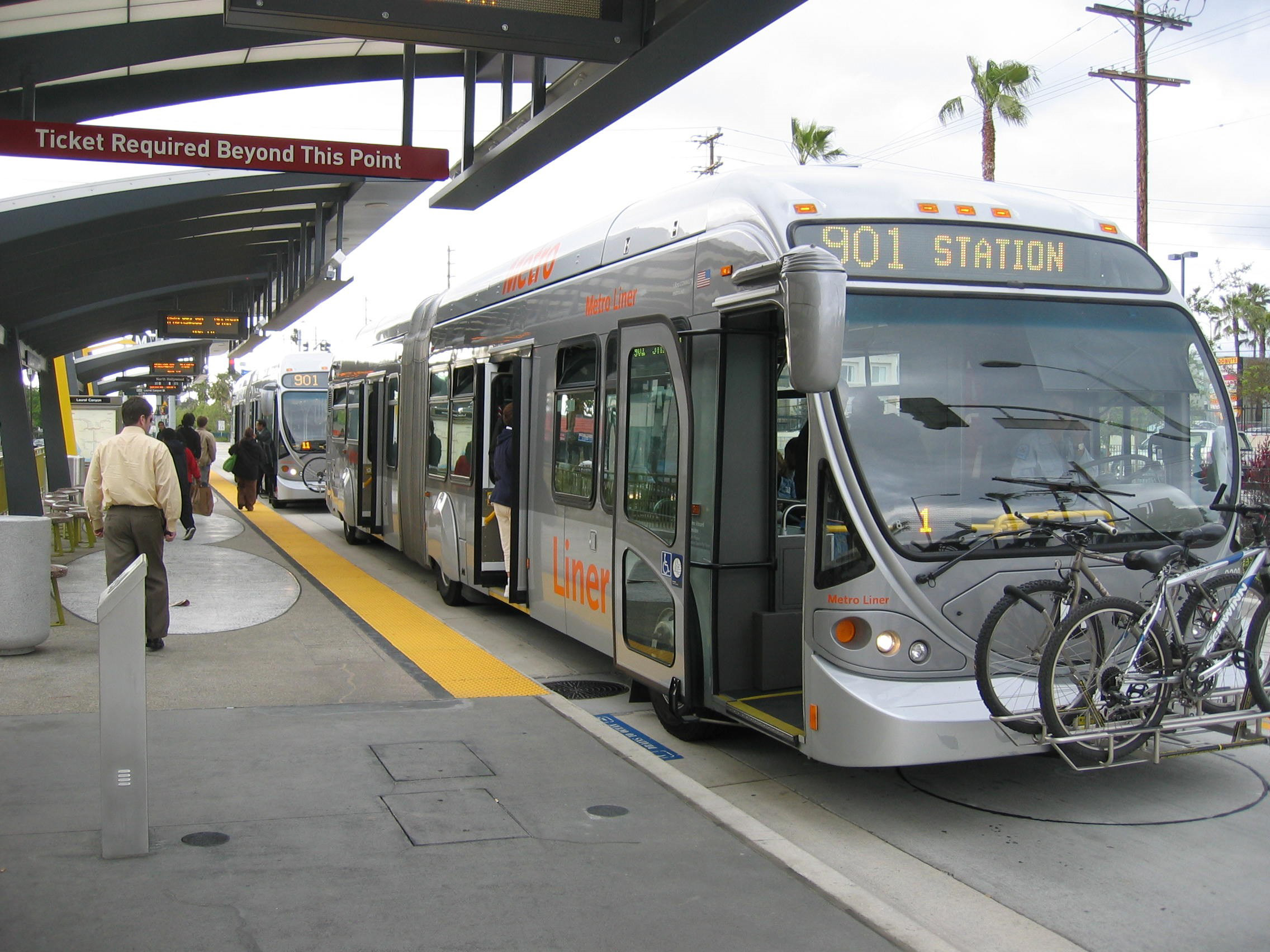Auditors keep a close eye on school district contracting in Maryland — and if you’re wondering why, just look at what happened in May in Montgomery County.
After auditors raised suspicions, the district’s former assistant director of transportation pleaded guilty to stealing over $320,000 from the county’s school system over a span of at least five years by misusing district purchasing cards and mismanaging a contract for the purchase of school buses.
What’s more, several state audits in recent years raised serious questions about contract spending in other Maryland public school districts. Richard P. Henry, Maryland’s inspector general for education, acknowledged the possibility that officials in other school districts could be misusing the school contracting system.
“You know, we don’t find out all the time, but there will always be some individuals who will take advantage of flaws in the system, and you know, possibly profit from it or use it to their advantage,” Henry said.
County or district officials frequently audit local school districts in Maryland. On top of that, the state Office of Legislative Audits reviews the books of each school district once every six years, whereas the Maryland Office of the Inspector General for Education takes complaints from the public and investigates them.
But audits, while helpful, can only identify problems. It is up to the districts to implement solutions — and often they don’t. The Office of Legislative Audits released an audit of the Maryland State Department of Education in January. Auditors found 171 repeated findings that local school systems had yet to address from previous audits.
That audit recommended the Department of Education establish a monitoring process. The department agreed to assess whether it’s feasible to require school districts to issue progress reports that track whether they are following their auditors’ recommendations.
Matthew Streett, assistant director of the Compliance and Performance Audit Division in the Office of Legislative Audits, said school districts should take audit findings seriously.
“I think it’s important to safeguard the assets because ultimately, when you’re talking about money that flows through the school system, it’s all intended to help educate the students, and if money is being diverted, it’s less money that’s intended for the classroom and students,” Streett said.
Public school districts in Montgomery County, Baltimore City, Howard County, Charles County and Calvert County have all been audited in recent years. Concerns raised in those audits range from unauthorized transactions to insufficient documentation to justify major purchases.
In addition, the audits found that nearly every school district failed to complete proper documentation for approval of intergovernmental purchasing agreements. In many cases, employees made purchases without documenting why they were necessary and beneficial to the district.
Here’s a detailed look at what auditors and investigators found in recent years in those individual school districts:
Montgomery County
Auditors have found a number of issues with school district contracting in Montgomery County, but none more serious than the one that led to guilty pleas from two district transportation department officials this year.
In May, Charles Ewald, the district’s former assistant transportation director, pleaded guilty to one count of felony theft and one misdemeanor count of misconduct in office.
Court records said Ewald used his position to request checks from an “off-the-books” account held by one of the district’s longtime bus vendors, American Truck & Bus Inc. The money came from late fee and change fee reimbursements owed to the district — and, according to court documents, $352,568.68 of it went directly to Ewald’s bank account. In addition, Ewald had the bus vendor issue about $16,000 in checks to other school district staff members.
Todd Watkins, the former director of the transportation department, pleaded guilty in June to one count of misconduct in office, and not just because he failed to fulfill his role of overseeing the department’s expenses. Watkins was the one who coordinated with American Truck & Bus to establish the “off-the-books” account, court records said.
Watkins received over $13,000 using the account and intentionally violated the district’s reimbursement policy, but he provided documentation for those payments and was not charged with theft.
A judge will sentence Ewald and Watkins in September, closing a criminal case that began with an internal review in 2021.
Then last December, the Montgomery County Office of the Inspector General found that school district transportation department officials used school funds to pay for a NASCAR headset, drag racing tires, a sport loop band for an Apple Watch, a car roof rack for kayaks, Home Depot and Amazon gift cards, along with other personal items. The purchases totaled nearly $5,000.
Also late last year, the state Office of Legislative Audits weighed in with its look at how Montgomery County Public Schools do business, finding other concerns far beyond the district’s transportation department.
For example, auditors found the county failed to complete state-mandated written assessments for three intergovernmental contract agreements worth a combined $20.9 million. District officials did not make sure the invoice pricing matched the agreed contract; instead, they relied on informal proposals and internet searches to determine whether they were getting the right prices.
Auditors also found several problems with district construction contracts:
- The district was missing critical documentation to justify their award of five contracts valued at over $150 million. This included information on losing bidders, selection criteria and evidence of selection committee evaluations.
- School officials took no consideration of price, as required by law, in selecting some contracts. District officials awarded the contract without documenting how they agreed upon the prices.
- Eight procurements valued at $190 million were never put up for bid on eMaryland Marketplace Advantage, despite the law requiring any procurement or award over $50,000 to be published and put up for competitive bidding.
- On the construction sites themselves, school district officials repeatedly neglected to complete daily inspections to make sure the work was being done correctly on eight contracts totaling $181.8 million.
In response to the audit, Montgomery County Public Schools officials confirmed all the findings were factually accurate and outlined procedures they planned to implement to correct the problems.
Baltimore City
The Maryland Office of the Inspector General for Education reported in May that Baltimore City schools overpaid taxi vendors by more than $695,000.
The district contracted taxis to transport students with extenuating circumstances, such as those with disabilities, in foster care, or who lack safe walking or bus routes to school.
District officials approved billing based on a voucher system that required a signature from the taxi driver and the student (or their guardian) upon completion of the ride. However, according to the investigation, some taxi drivers forged vouchers to bill the district for rides that never happened.
The bulk of those overcharges involved the city’s Yellow Cab Co. and the company that bought it in 2021, zTrip. Yellow Cab filed vouchers totaling $512,990.42 in the 2018-2019 and 2019-2020 school years that were not supported by student attendance records, the audit said. zTrip acquired Yellow Cab in September 2021, and the audit said the company had another $118,556.72 in unsupported voucher claims in the 2021-2022 school year.
Auditors found several instances of billed rides from Yellow Cab and zTrip that did not match student attendance records. For example, in one case, there were 18 roundtrips recorded for a student during February 2022. Yet attendance records showed the student only attended school nine times that month.
The investigation also found transportation charges for students that were no longer attending Baltimore City schools. Between the 2018-2019 and 2021-2022 school years, there were filings for a total of 25 students after they transferred schools or withdrew from the district. Additionally, 46 high school seniors were named on vouchers in June despite graduating in May.
The other four cab vendors servicing the district collectively accounted for a little over $64,000 of the total discrepancies, which auditors said did not warrant further investigation.
Sonja B. Santelises, CEO of Baltimore City Public Schools, wrote a letter responding to the audit. She noted the district’s taxi ridership decreased by 90% for the 2022-2023 school year compared to 2018-2019, serving fewer than 100 students, which allowed for closer monitoring and fewer discrepancies.
Santelises argued the district is not the only one to blame.
“City Schools has prioritized increasing our oversight of transportation vendors in recent years, despite the state’s long-standing and well-documented legacy of systemic underfunding and the resulting limited resources for additional monitoring,” she wrote.
Howard County
The state Office of Legislative Audits, in a report issued in April, found the Howard County Public School System has significantly improved its financial oversight but auditors have concerns over the district’s procurement practices, contract bids, and processes for monitoring payments for transportation and health care.
The prior audit, conducted in 2016, found issues ranging from unreported salaries to incomplete inventories of technology equipment. Since then, auditors said, Howard County has successfully addressed six of the eight issues found.
Despite the county’s progress, the most recent audit highlighted a few problem areas.
The county violated state law by failing to publish some contract bids and awards on eMaryland Marketplace Advantage. The Office of Legislative Audits tested 10 contracts totaling $35.7 million and four of those contracts totaling $18.7 million were never published. Therefore, the county did not give other contractors the opportunity to bid in those instances.
The district failed to audit the third-party administrator that made health care payments on the district’s behalf. As a result, district officials can’t be sure whether care was actually administered and billed accurately, auditors said.
The audit does not identify that third-party administrator, but in an email to the Local News Network, a district spokesman identified the company that managed the district’s health care programs at the time as Kelly & Associates Insurance Group. The district paid $746.5 million over those four years to Kelly, making it one of the highest-paid school district contractors in the state.
Charles County
State auditors reported in January that Charles County school officials don’t adequately supervise the use of district-issued credit cards.
They issued the cards to departments and schools with credit limits ranging from $1,000 to $50,000. The transactions on these cards totaled $687,000 in fiscal year 2021.
Since multiple employees have access to each card, it is difficult to determine who is responsible for any fraudulent charges, auditors said.
In addition, supervisors are not using Level-3 data to analyze transaction logs. Level-3 data are detailed descriptions of purchases provided by merchants, which would make it easier to identify suspicious charges.
Charles County school officials also could not produce a reasonable justification for why they spent $6 million for bus maintenance costs in fiscal year 2019.
The district agreed that all the audit’s findings were factually accurate. However, district officials noted risk-reducing procedures they have in place for credit cards and included a more detailed cost breakdown of bus vendor fees.
Calvert County
The state Office of Legislative Audits reported in January 2022 that Calvert County Public Schools took shortcuts in the spending approval process and failed to monitor whether their vendors were billing them correctly.
The lack of oversight on the district’s financial systems also allowed individual departments and schools to make purchases while skipping necessary procurement processes, auditors said.
Auditors also raised questions about the district’s transportation costs. Compared to other comparable-sized districts, Calvert County schools paid 22 cents per mile more for transportation.
In addition, the district also paid over a half-million dollars in bus operations fees without providing any reasonable justification for these transportation costs.
On other contracts, the district didn’t check to see if the price written on the invoice from vendors matched the pricing agreed to in the contract. The audit found five payments in intergovernmental contract agreements that added up to $642,000 that were vaguely detailed or had different product descriptions.
The district also allowed a third party to pay out medical claims without ever ensuring the services were provided and appropriately priced.
Calvert County Public Schools accepted the audit results and said it would address the issues.






Recent Comments